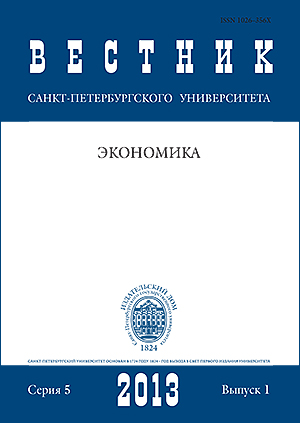Economy and Anti-economy: Transformation in the Post-Soviet Space
Abstract
The gist of this article is the idea that post-Soviet economy transformation, according to the statements of Western and Russian analysts, economists, politologists, and journalists was not only the refl ection of “pure” economic, social, and political progress, particularly at the initial stage. In this process we can find both elements of progress and regress, regimes of economics and anti-economics. The latter are occurred in the regimes producing economic (public and private) evil in different kinds of losses of scare human, material and other resources causing decrease of countries’ aggregate economic potential. Essential role in the revolutionary reforms direction and character was played by elite and population indoctrination which was done in the individualistic manner occurring in the economy as the market fundamentalism. In the result, reforms became anti-system and negatively infl uenced effectiveness of the public sector producing very important type of economic goods. Being the goods of common use produced in conditions of scarcity of resources, these system goods are used to form the economy infrastructure — material links (communication, roads, etc.) and non-material liaisons (political governance, legislative system). Society’s inability to reproduce these goods leads to system’s disease — the major expression of anti-economy in post-socialist countries.
Keywords:
anti-economy, post-socialist countries, reforms
Downloads
References
References in Latin Alphabet
Translation of references in Russian into English
Downloads
Published
How to Cite
Issue
Section
License
Articles of the St Petersburg University Journal of Economic Studies are open access distributed under the terms of the License Agreement with Saint Petersburg State University, which permits to the authors unrestricted distribution and self-archiving free of charge.






